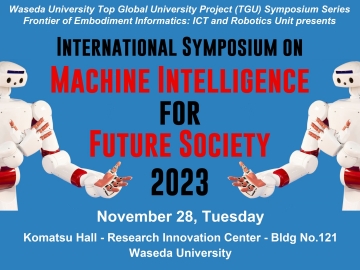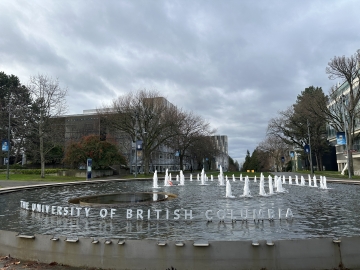The Center for Positive/Empirical Analysis of Political Economy along with Waseda University’s Top Global University project (TGU) supports Waseda students who study abroad through the international network QTEM (Quantitative Techniques for Economics and Management). Below is a report from a student who studied at the University of Amsterdam.
Tomoya Iizawa, first-year master’s student, Graduate School of Economics
My Introduction
I am Tomoya Iizawa, a first-year student in the master’s program at the Graduate School of Economics (GSE). I received travel support from the TGU office and studied at the University of Amsterdam (UvA) in the Netherlands as part of the QTEM program for six months from August 2023 to February 2024. Below is areport of what I experienced.
The QTEM program aims to train students to contribute to better decision-making in companies with curricula specializing in quantitative analysis such as econometrics and machine learning, and is organized by select universities in Europe and Asia (see the GSE website for more details).
Before Leaving Japan
I mainly studied microeconometrics, which involves conducting empirical analysis using microdata held by individuals, households and companies, and thus I became interested in how this technique could be utilized in business situations. Additionally, I had never been outside of Japan and needed to improve my English. That is why I decided to participate in QTEM.
Before leaving Japan, I took an online English conversation course to practice my speaking skills and reviewed the classes regarding econometrics I had previously taken. These preparations enabled me to get used to the courses at UvA quickly. Those who are interested in QTEM might face the problem that some of the courses listed on the QTEM website are not open to international students and are only offered to full-time students. As a result, it took me a long time to plan courses that matched my interests. I recommend that you ask a coordinator about your courses or check the official syllabus once you decide what you wish to study.
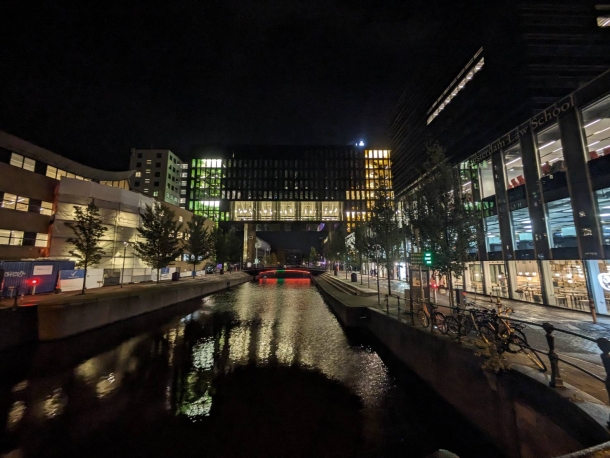
Night view of campus. The volume of assignments was high in all classes, so I often stayed in the library until night.
My Courseload
Regarding the courses, I was interested in one of the QTEM modules, “Business Intelligence and Big Data,” and took the following five courses at UvA.
・Managerial Economics
I learnt about the manager’s role needed for the success of a company, including how to motivate employees and how to measure their performance, based on the contract theory in microeconomics and various theories in psychology. The course illustrated the process of theoretical analysis in which we first model the behavior of managers and subordinates and solve the model for key implications, and I found it interesting.
・Public Economics
I learnt about social choice theory, which explores desirable voting rules and how to aggregate the preferences people have, as well as the fundamental topics in public economics such as income inequality and income tax systems. Through this course, I could deepen the understanding gained from a course I had completed as an undergraduate.
・Machine Learning for Econometrics
I learnt the theory and Python implementations of typical machine learning methods such as Random Forest, SVM and Boosting. In the final exam, I was required to mathematically explain how these algorithms actually work step by step, which was quite difficult. The course was extremely useful for me, as there are no lectures on machine learning at the Graduate School of Economics, and I had to cover this topic by self-study.
・Data Science for Business
After overviewing each topic of supervised and unsupervised machine learning, I worked in a group on a series of data science projects in which we were given data from a hypothetical company, implemented the machine learning methods to identify problems, then considered the solutions to the identified problems, and finally presented our idea to an audience. Luckily, I was able to form a group with QTEM students from other partner universities and was stimulated to see the various ways the members tackled the project.
・Empirical Market Analysis
I learnt about typical theories of empirical IO, such as the market power of firms in monopolistic or oligopolistic markets, the impact of mergers and the estimation of demand functions, and the implementation using Stata.
Since UvA has a unique teaching schedule, the course was heavily packed with classes and there were cases where the first lecture and the final exam were held within the same month. I had lectures on new topics twice a week and was required to read two or three papers and write an empirical analysis report every week. I feel this course created a strong foundation for my future research activities.
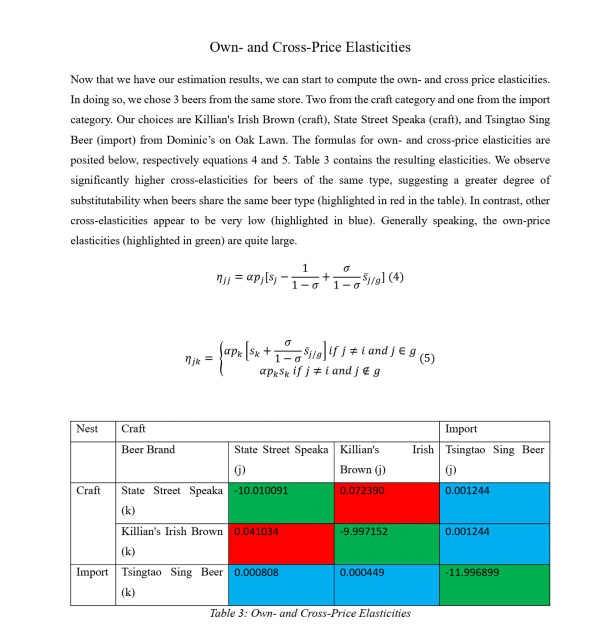
Issues related to the estimation of price elasticities for beer
At UvA, a course consists of large-group classes (Lecture) and small-group interactive classes (Tutorial). In most courses, a Problem Set (PS) was provided each week and the students needed to discuss the solutions to the PS in Tutorial, which was intended to improve their understanding and theory application skills.
Accomodations and Daily Life
The Netherlands is said to have a serious housing crisis and I was concerned about whether I could successfully secure housing, but I was lucky enough to win the lottery for student housing and lived in a shared room with two other students from other faculties at UvA. During my stay, the yen was at a record low and the euro was at a record high, so I had to cook for myself every day. Having dinner with my roommates and casually discussing our specialization and social issues were relaxing moments throughout the period of exchange.
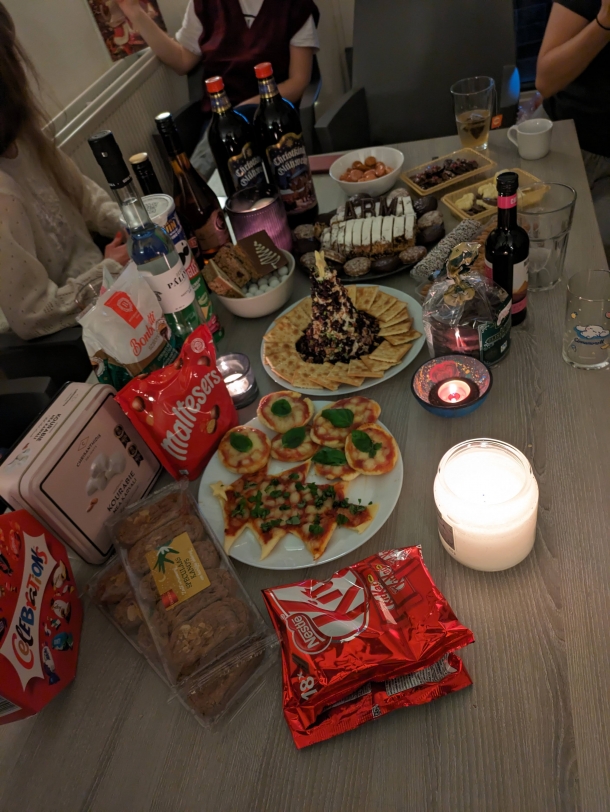
Preparations for a Christmas party with dormitory friends.
Final Remarks
In summary, I would like to mention that all the local students have the spirit of “learning as much as possible from the teachers”. They frequently asked questions in class even if they were trivial, and they were not afraid to point out the teacher’s explanations. Their vigorous attitude gave me a good opportunity to reflect on my attitude towards learning.
From now on, I will make full use of my English skills to write my master’s thesis and carefully study machine learning, which I felt I did not understand well. Even after graduation, I will continue to value my curiosity and strive to gain knowledge with a proactive attitude towards learning.
Finally, I would like to thank the TGU office and the Graduate School of Economics for their invaluable support during my study abroad period.

